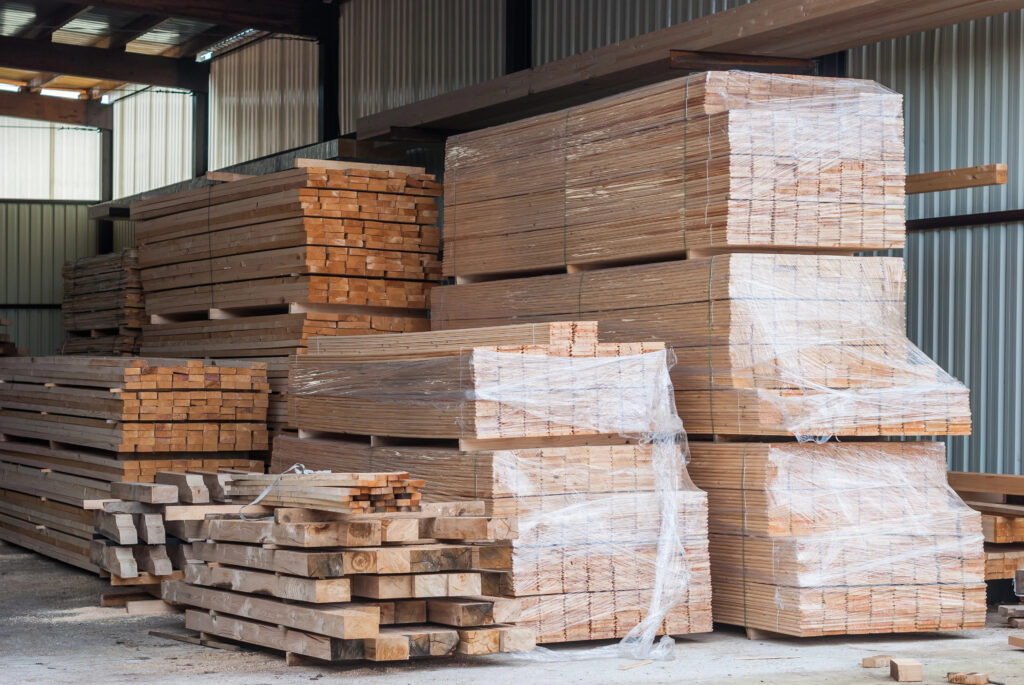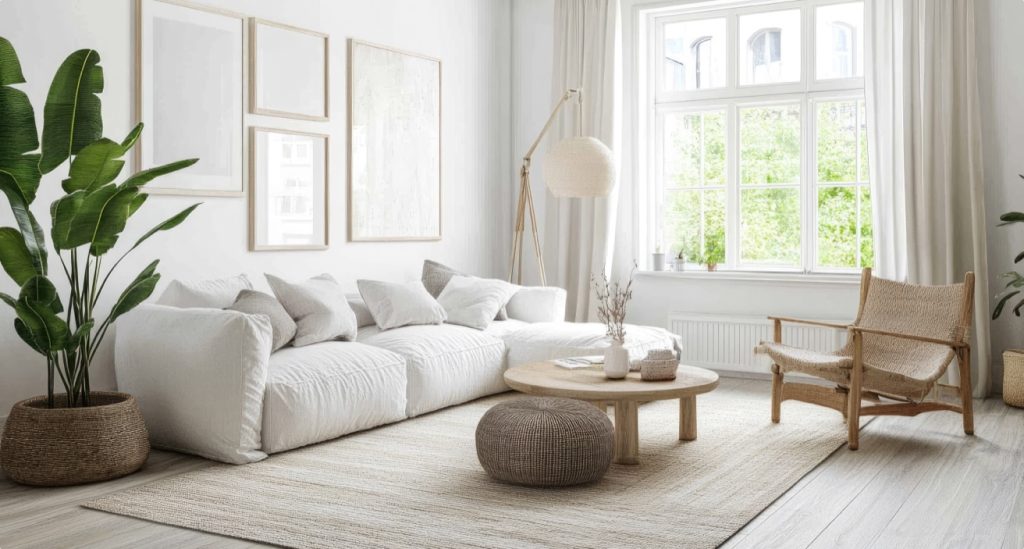Choosing between hardwood and softwood sash windows? Explore the benefits of each timber type to find the perfect fit for your windows and doors.

Hardwood vs Softwood Sash Windows: Which Should I Choose for Your Home?
When it comes to selecting the perfect sash windows for your property, one of the first decisions you’ll need to make is whether to choose hardwood or softwood timber. Both types of timber offer their unique advantages, but the choice ultimately depends on your specific needs, budget, and aesthetic preferences. In this blog post, we will explore the differences between hardwood and softwood sash windows, helping you make an informed decision for your home or project.
What Are Sash Windows?
Before diving into the differences between hardwood and softwood, it’s important to understand what sash windows are. A sash window is a type of window where the frame holds one or more movable panels, known as sashes, which hold the glass. The sashes can slide up and down or sideways to open and close the window. This design is common in both traditional and modern homes, offering a classic aesthetic combined with excellent ventilation.

Hardwood Sash Windows: Strength, Durability, and Elegance
Hardwood sash windows are made from timber sourced from broadleaf trees, such as oak, meranti, and walnut. These woods are denser, stronger, and generally more durable than softwoods. Let’s take a look at some of the benefits and considerations when choosing hardwood sash windows:
Advantages of Hardwood Sash Windows
- Exceptional Durability Hardwood is naturally more resistant to wear and tear compared to softwood. It is less prone to warping, cracking, or shrinking, which makes it ideal for sash windows that need to withstand daily use and fluctuating weather conditions.
- Superior Aesthetic Appeal The natural grain and texture of hardwoods like oak or meranti create a refined, elegant look that adds a touch of luxury to any property. Hardwood sash windows are often associated with high-end, period properties or those aiming for a classic, timeless aesthetic.
- Better Insulation Due to its density, hardwood offers better thermal insulation than softwood. When combined with modern glazing options, hardwood vertical sliding windows can significantly improve your home’s energy efficiency by reducing heat loss and preventing drafts.
- Increased Longevity Hardwoods are known for their longevity. With proper maintenance, hardwood sash windows can last for decades, offering great value over time. They can also be refinished and re-stained if needed, further extending their life.
Considerations for Hardwood Sash Windows
- Cost Hardwood sash windows typically come at a higher price point compared to softwood options. This is due to the cost of the raw material and the additional labour involved in crafting these windows.
- Weight Because hardwood is denser, it can make the window heavier, which could affect the ease of operation, especially in larger windows or higher floors. It’s important to ensure that the window frame and hardware can support the weight.

Softwood Sash Windows: Affordable, Versatile, and Sustainable
Softwood sash windows are made from timber sourced from coniferous trees such as pine, cedar, and fir. While softwood is generally lighter and more affordable than hardwood, it still offers a wide range of benefits. Let’s explore the pros and cons of choosing softwood for your sash windows:
Advantages of Softwood Sash Windows
- Cost-Effective One of the primary advantages of softwood sash windows is their cost-effectiveness. Softwoods are generally more affordable than hardwoods, making them a popular choice for those working with a tighter budget. They provide a great balance between quality and cost.
- Easy to Work With Softwoods are lighter and easier to work with, which makes them an ideal option for sash windows in larger or custom designs. They can be crafted more easily into intricate patterns or profiles, giving you greater flexibility in design.
- Sustainability Many softwoods, such as pine and fir, are sustainably sourced, making them an environmentally-friendly choice for those who prioritize eco-conscious living. Additionally, softwoods grow faster than hardwoods, meaning they are a renewable resource that can be replenished more quickly.
- Good Insulation Properties While not as thermally efficient as hardwood, softwood can still offer decent insulation properties. With the right glazing, softwood sash windows can help improve energy efficiency in your home.
Considerations for Softwood Sash Windows
- Lower Durability Softwood is less dense and more susceptible to damage than hardwood. It can be more prone to dents, scratches, and wear over time, especially in areas with harsh weather conditions. However, with proper care and maintenance, softwood windows can still last for many years.
- More Maintenance Required Softwood sash windows may require more frequent maintenance, such as repainting or resealing, to protect them from the elements. Without proper care, softwood can be more susceptible to rot, insect damage, or warping.
Key Differences Between Hardwood vs Softwood Sash Windows
| Feature | Hardwood Sash Windows | Softwood Sash Windows |
| Cost | Higher initial cost | More affordable |
| Durability | Very durable, resistant to wear and tear | Less durable, more prone to damage over time |
| Aesthetic | Elegant, high-end appeal | Versatile, but generally less luxurious |
| Insulation | Better insulation properties | Good, but slightly less effective |
| Maintenance | Lower maintenance required | Requires more maintenance |
| Weight | Heavier, may affect ease of operation | Lighter, easier to handle |
Which Should You Choose?
The choice between hardwood and softwood sash windows ultimately depends on your needs and priorities. Here are a few key factors to consider:
- Budget: If you’re on a tight budget, softwood timber windows offer an affordable and practical solution. However, if you’re willing to invest more for long-term durability and a high-end aesthetic, hardwood sash windows are the way to go.
- Aesthetic Preferences: If you want a traditional, elegant look for your property, hardwood windows may be the perfect choice. Their timeless appearance and high-end finish can add significant value to your home. On the other hand, softwood windows offer a versatile design option that can complement a wide range of architectural styles.
- Longevity: If you’re looking for a window solution that will stand the test of time with minimal upkeep, hardwood sash windows are an excellent choice. If you’re willing to take on a little extra maintenance to save on initial costs, softwood windows can still offer a great solution.
- Environmental Considerations: Softwood sash windows may be the better choice for environmentally-conscious homeowners due to their renewability and sustainability. However, both options can be eco-friendly when sourced responsibly.
Conclusion
Choosing between hardwood and softwood sash windows comes down to a balance of factors such as budget, durability, aesthetic preferences, and maintenance. Both materials have their unique advantages, and understanding these can help you make the best decision for your home. Whether you opt for the elegance and durability of hardwood or the affordability and versatility of softwood, the right sash windows will enhance the beauty and performance of your property for years to come.
At Wooden Windows Online we specialize in high-quality timber sash windows tailored to your specific needs. Contact us today to explore our range of hardwood and softwood options and find the perfect window solution for your home!



